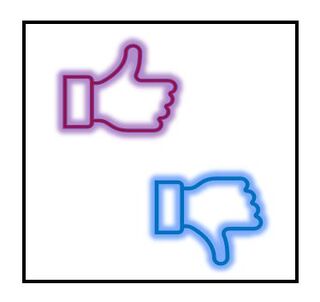Empathy
Empathy Does Not Mean Acceptance
Have empathy for others, but do not excuse their bad behaviors.
Posted August 31, 2020 Reviewed by Lybi Ma

Often my teaching about empathy involves debunking myths. I have written about the myth of thinking empathy is a weakness or that it leads us to support poor emotional decision-making. Again, for the record, empathy is not a weakness, it takes strength. And a lack of empathy is what supports bad decision-making, not engaging in true empathy. Here is another myth that needs to be debunked: that empathy leads us to accept and excuse bad behaviors.
Empathy for others does not mean ignoring bad behaviors
The idea that being empathic will create enough sympathy that we feel bad for others and therefore are willing to excuse their behaviors is wrong. It is not empathy. Many years ago, I had to testify in a court case against a young man who had been stalking and harassing a young woman. As I was a professional social worker, I think his lawyer thought that sharing the difficult upbringing of his client would move me to feel compassion and tell the judge that his client’s behavior was excusable. I had read the young man’s file and knew all about his struggles growing up and fighting depression and addictions. The lawyer asked me while I was on the stand if knowing what I did about his client’s difficult early life, did I consider his behavior understandable and therefore did not warrant punishment?
My response in the courtroom that day predated my study of empathy, but looking back, it was spot on. I acknowledged that the defendant had a hard life and clearly struggled, but that did not excuse his bad behavior. He did not get a free pass based on sympathy. Empathy meant we should understand his difficulties, try and find him help, but hold him responsible for his behaviors. What he did was frightening, threatening, and dangerous, and could not be condoned. He deserved punishment. What I was able to do was avoid the sympathy trap, not excusing bad behavior because we might feel bad for someone.
Empathy is not sympathy
Studying empathy has given me the research and scholarship to support the understanding that empathy is very different from sympathy1 and just because we have empathic feelings does not mean we have to excuse behaviors or dismiss negative consequences for those behaviors.2 In fact, we can use our empathic insight to do two important things: hold people accountable and fashion appropriate responses.
Hold people accountable
We can hold people accountable by turning the table and asking for empathic insight from others. In the case I was involved with years ago, turning the table would have pressed the young man to think about how his victim may have felt. Could he understand why she was scared of him? Did he see why she wanted him to leave her alone? I know this is a difficult task. Turning the table with someone who lacks empathy is extremely difficult, and often impossible. Adults are typically entrenched in learned behaviors.
Fashion appropriate responses
If we cannot get accountability, we might be able to use our empathy to think of ways to stop the bad behavior. This young man lacked the skills needed for empathy. Could he receive his punishment and receive mental health services that teach emotion regulation and perspective-taking, two key skills that he lacked that contribute to empathy? Can we use our empathic insight to identify what abilities and skills people who lack empathy need to learn so that they too can gain better insight into others?
Bad behavior is bad behavior
Certainly, we can have empathy for people who behave badly. We can even have sympathy for them. But those feelings should not lead us into excusing their behaviors. Bad behavior, no matter how much insight we may have about what causes it, is still bad behavior.
References
1. Gerdes, K. E. (2011). Empathy, sympathy, and pity: 21st-century definitions and implications for practice and research. Journal of Social Service Research, 37 (1), 230–241.
2. Hoffman, M. L. (2000). Empathy and moral development: Implications for caring and justice. London: Cambridge University Press.


